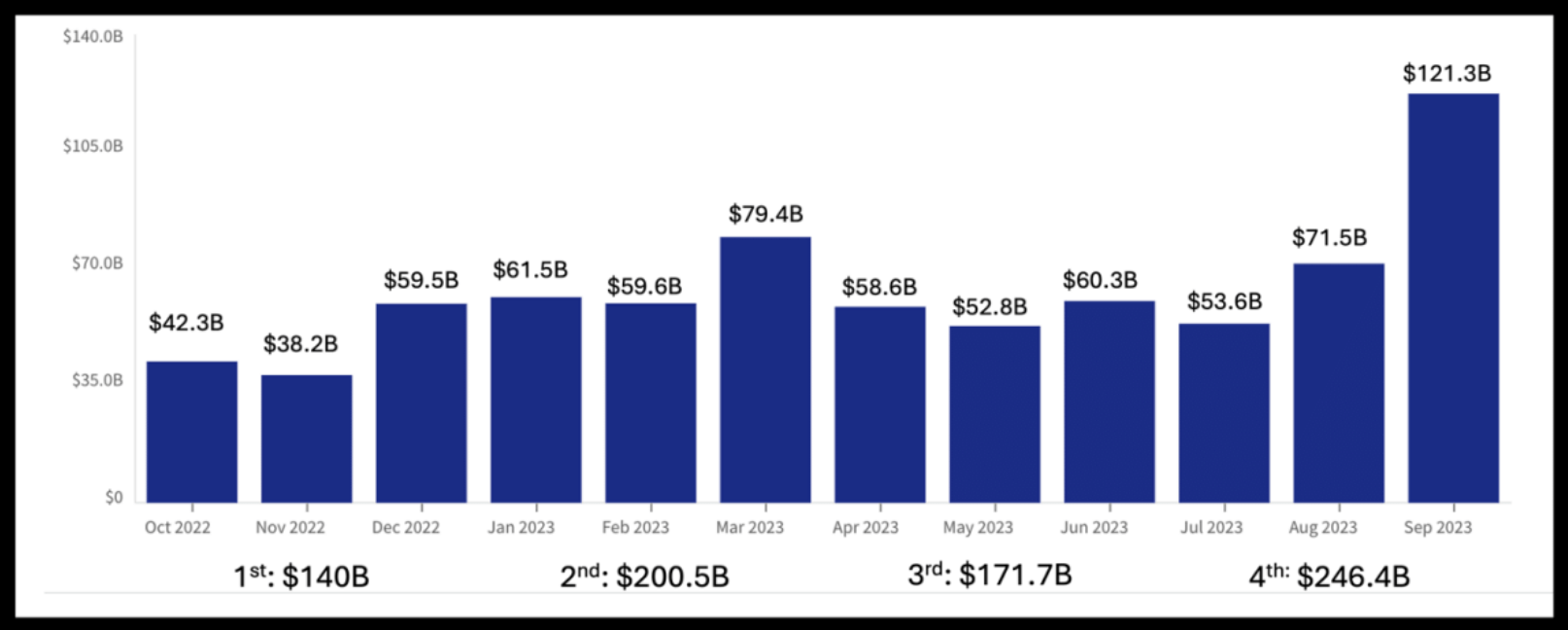In the world of government contracting, a long-standing debate rages on: is it better to be a specialist, excelling in a specific niche, or a generalist, adaptable and versatile in meeting various needs? While specialists boast deep expertise, generalists offer broad capabilities. But when it comes to winning contracts, which approach reigns supreme? The answer may surprise you. Dive into this article to discover the better strategy and uncover the secrets to success in the government contracting arena.
When was the last time you undertook a complex project you were passionate about? Maybe it was starting a business, adding a new division to your business, or a personal project with the family.
The federal fiscal year begins on October 1st and ends on September 30th. The fourth quarter spans July, August, and September.
During fiscal year 2023, $758.6 billion was awarded to businesses, including federal contracts, with $246.4 billion occurring in the fourth quarter. This represents 32.4% of all spending. Ideally, each quarter should account for 25% of the annual spending. However, the fourth quarter presents the greatest opportunity to government contracts. The question is, are you ready to take advantage of the fourth quarter and secure your share of this spending?
When it comes to government contracting, you want to be on top of your game, and that means having a killer capture plan and implementing advanced strategies that are rarely used. In this article, we're going to walk you through the steps for developing a short-term contracting acquisition plan, expanding your business with some hidden methodologies, and then implementing a long-term plan with advanced techniques.
The government market is a vast and complex landscape, offering lucrative opportunities for
businesses of all sizes. However, winning government contracts is not as straightforward as
submitting a proposal and hoping for the best.
There is no one-size-fits-all approach to government contracting. Your strategy will depend on various factors, including your industry, company strength, and past performance. Below are several strategies to consider:
"Follow the money" is a catchphrase popularized by the 1976 docudrama film All the President's Men, which suggests political corruption can be brought to light by examining money transfers between parties. While the term was popularized in the 1970s, the premise behind the statement has been around for over a century. In Latin, the term Cui bono? means "to whom is it a benefit?"
The Defense Department is taking full advantage of artificial intelligence (AI) to enhance the federal acquisition process. The Chief Digital and AI Office (CDAO) at the DoD has developed a prototype AI tool, called Acqbot, as part of its Tradewind initiative.
Teaming and joint venture agreements are powerful tools often utilized by successful businesses in the government market. Although each agreement may seem straightforward, there are significant differences between them. The SBA has recently implemented new rules applicable to both agreements, so contractors should be aware of these essential differences.
When a company launches its business, many professional advisors suggest that entrepreneurs find a need and focus on that one niche, offering a solution to fill that demand. They are sought after when they are considered specialists in that one vertical*. This strategy works well, especially when there aren't many competitors and they can capture a larger market share.
Join the GCA Family
Only 22% of federal contracting dollars are awarded to small businesses. Our goal is to be an agent of change by helping businesses owned by women, minorities, and veterans to get their fair share of the opportunities in the government market.











